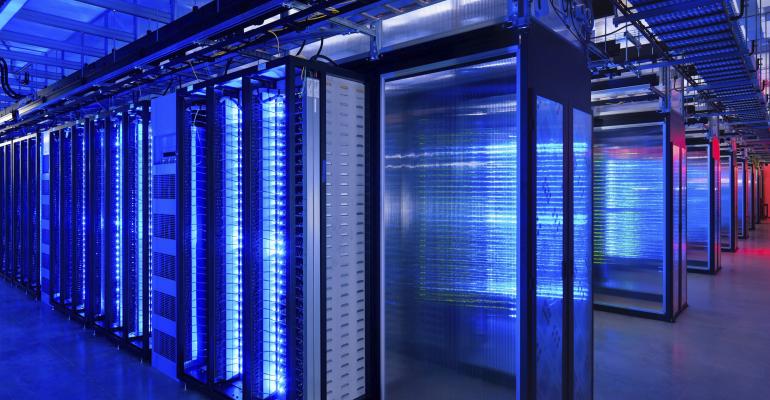Occupier demand continues to be strong in the data center space, despite the coronavirus outbreak impacting leasing across many other commercial real estate sectors, according to industry sources.
“Activity remains consistent, with some segments like cloud service providers seeing increased demand,” says Pat Lynch, senior managing director of data center solutions at real estate services firm CBRE. “Deals continue to get done, with a select few occupiers putting projects on hold.”
Year-to-date, leasing activity in the data center space increased by about 3 percent compared to the same period in 2020, according to Amanda Ortiz, director of national industrial research at real estate services firm Colliers International. Investment sales activity, meanwhile, rose by 23 percent year-to-date. In March and April, activity in the data center sector slowed due to COVID-19, as it has in other property sectors, but deals are still flowing. In fact, the number of RFP bids on data center projects increased by approximately 35 percent year-to-date, notes Michael Perelstein, director of technical services at Rubicon Technical Services, a company that offers technical and operational services to data centers, telecommunications centers and power transmission facilities.
“Early indications are that data centers appear to be less impacted than other property types,” says Lynch. “I have some concerns that likely cuts to enterprise IT budgets could have a negative impact in future quarters, but I also believe this will be counterbalanced by the need to ramp up remote work infrastructure that was exposed as a result of Covid-19.”
Cloud service providers, network companies and content companies have all been experiencing increased demand during the pandemic, which in turn is driving demand for data center space, Lynch notes. The widespread shelter-in-place orders are “putting upward pressure on the systems that need to support more remote workers than ever before, definitely,” says Ortiz.
For example, areas including Northern Virginia and Silicon Valley have particularly strong demand for data center storage and may see supply challenges in the near term, according to Lynch. These potential supply issues could eventually result in increased demand for data center facilities in smaller, secondary markets. Property pricing in both primary and secondary markets could also increase.
Meanwhile, despite the increased need for reliable networks, social distancing guidelines in some areas have made it difficult to continue construction on projects that were already underway. For instance, construction was suspended on Facebook’s nearly 1.0-million-sq.-ft. data center project in Huntsville, Ala.
Aside from that Alabama project, Facebook is also building approximately 8.2 million sq. ft of data center space in secondary and tertiary markets including Albuquerque, N.M.; Richmond, Va.; and Columbus, Ohio, says Ortiz.
“Sentiment surrounding the data center sector remains extremely positive,” she notes. “In fact, economists predict that the data center sector, along with self-storage and distribution space, should be the least impacted by the current health crisis as density of employee interaction is relatively low within these sectors.”

